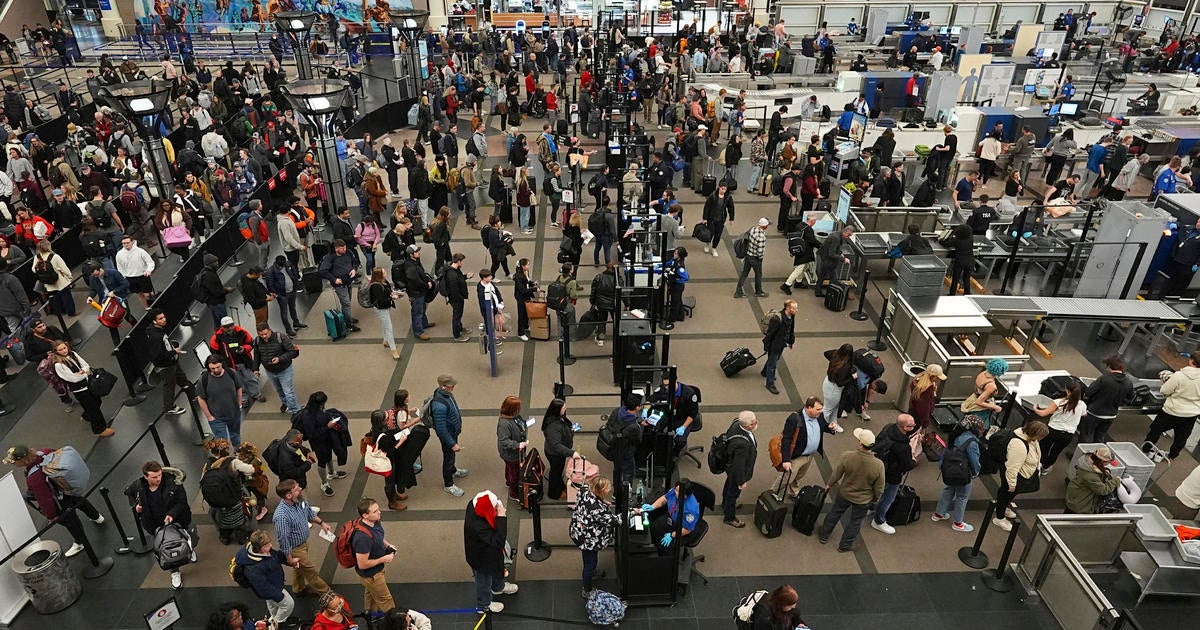
Severe weather conditions across the country could cause delays as forecasts show areas of rain and snow ahead of the holiday.
Weekend travel itineraries were disrupted by lingering wintry conditions Saturday in the Northeast, while western states braced for upcoming rounds of rain in lower elevations as well as snow in the mountains. As of Sunday morning, forecasters predicted severe weather would affect a number of interstate highways in the Northeast and Northwest, including I-95, I-90, I-84, I-80 and I-5.
Weather conditions brought down power lines along Amtrak and New Jersey Transit rail lines Sunday morning, suspending both companies’ rail services in Philadelphia as well as parts of New Jersey and New York. CBS News Philadelphia reported. In an alert notice sent by Amtrak, the company said: “Due to downed overhead power cables blocking the tracks, service is temporarily suspended between Philadelphia and New York. Amtrak personnel are on site. » Amtrak estimated that the tracks would reopen Sunday at 12 p.m. ET.
For the remainder of the week, the forecast called for a mix of rain and snow moving toward the Great Lakes and Northeast regions Monday through Tuesday, Christmas Eve. Parts of the Mississippi Valley are expected to receive heavy rain Tuesday, with a marginal risk of flash flooding already in the forecast weather forecast for the region.
There were 1,683 delayed flights to or from the United States today, and 55 cancellations to or from the United States as of late Sunday morning, according to tracking site FlightAware. Delays have tripled since 5 a.m. ET and cancellations have nearly doubled, the tracker showed. Among the affected U.S. airports, Chicago’s O’Hare International Airport, John F. Kennedy International Airport and Boston’s Logan International Airport appear to have been most affected by schedule delays. Boston Logan and JFK in New York each reported some 80 delays among departing flights, while O’Hare reported more than 40.
This looks like the the busiest end-of-year travel period recorded, according to the AAA automobile clubwhich said more than 119 million people are expected to travel at least 80 kilometers from their homes between Saturday this weekend and New Year’s Day. This would surpass the previous record set during the 2019 holiday season. This year, the weekends before and after Christmas are likely to be the most congested on the roads and at airports.
As the U.S. House of Representatives avoided a government shutdown Friday night, the Transportation Security Administration also said it was preparing to screen nearly 40 million people between Dec. 19 and Jan. 2, a an increase of 6.2% compared to last year’s figures. The busiest days are expected to be December 20, 27 and 30, according to the TSA. But airlines are also preparing for large crowds on Sunday, as well as Dec. 26 and 29, as they expect relatively slow air traffic on Christmas Day and New Year’s Day.
Trade group Airlines for America predicts a similar record, saying it expects U.S. airlines to carry 54 million passengers between Dec. 18 and Jan. 6. This figure would represent a 6% increase in holiday air travel figures from last year.




